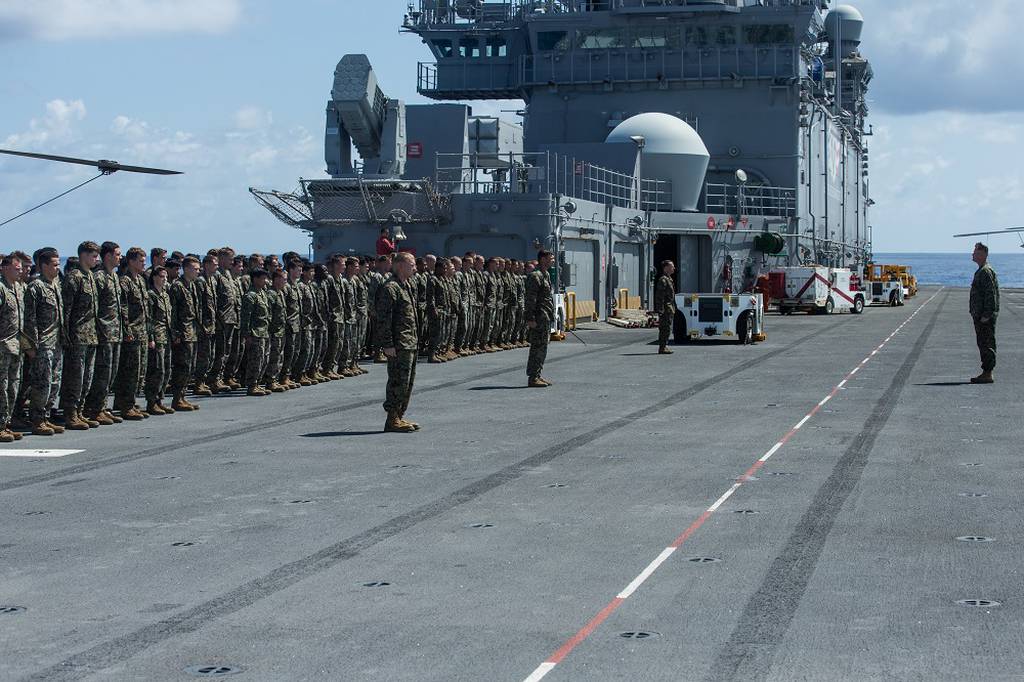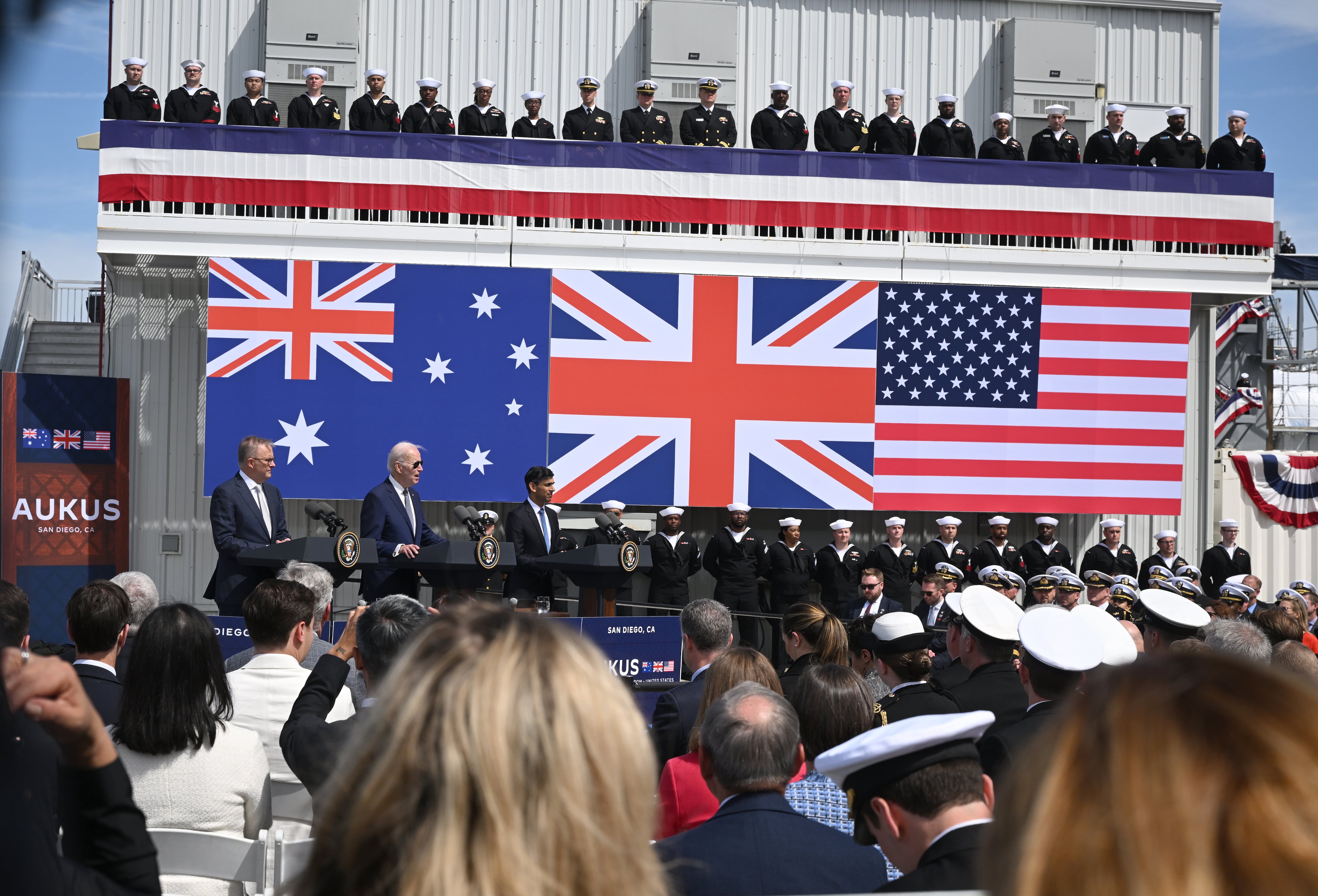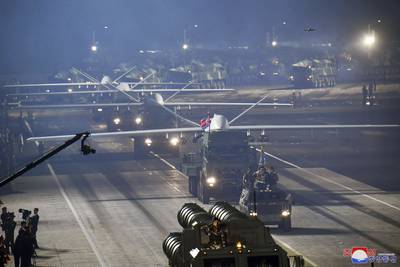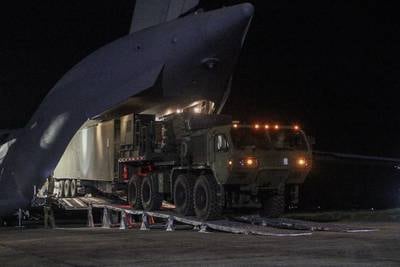WASHINGTON — Congressional negotiators on Wednesday agreed on a $700 billion defense authorization plan for fiscal 2018, including a 2.4 percent pay raise for troops and a boost in military end strength of more than 20,000 service members.
It also adds 90 new joint strike fighters to the military’s fleet and a third new littoral combat ship, but dumps controversial plans for a new “Space Corps” in favor of less ambitious bureaucratic changes within the Defense Department’s space programs.
The plan still needs final approval from the full House and Senate in coming weeks, and lawmakers will have to reconcile the cost of the measure with existing spending caps in place. The conference plan is roughly $85 billion above what is allowed under law for fiscal 2018, and no firm agreement has been reached yet on how to deal with that issue.
But lawmakers on the House and Senate Armed Services Committees have maintained for months that a sizable boost in defense spending is needed to keep up with military readiness and modernization shortfalls.
The measure — which sets aside about $626 billion for base defense funding and $66 billion for overseas contingency operations — includes money to pay for significant end strength boosts for each of the services, in keeping with requests from the White House.
The compromise bill would add 8,500 new soldiers (7,500 in active duty, 500 each in the Army National Guard and Army Reserve), 5,000 new sailors (4,000 in active duty, 1,000 in the reserves), 5,800 new airmen (4,100 in active duty, 900 in the Guard, 800 in the Reserve) and 1,000 new active-duty Marines.
Under the measure, current personnel would see a 2.4 percent pay raise next year, 0.3 percent above what President Donald Trump had recommended. The 2.4 percent mark equals the expected pay growth based on private sector wages, and would be the largest boost for troops since 2010.
It translates into about a $680 annual boost from 2017 pay for younger enlisted ranks, and about $1,080 a year for more senior enlisted and junior officers. A mid-career officer will see almost $2,000 a year extra under the plan.
Negotiators dropped controversial plans in earlier authorization drafts to establish a new Space Corps in coming years, instead opting for more technical changes in management and procurement rules for existing Air Force space programs. The White House and Pentagon had opposed the idea, calling it an extra level of bureaucracy.
The conference committee also opted not to include any language in the measure related to transgender troops, who have been at the center of legal fights since Trump announced over social media this summer he intended to block transgender individuals from enlisting and dismiss outed members from the ranks.
And they also jettisoned a Senate plan to trim housing benefits for dual-military couples, leaving the basic allowance for housing program untouched for now.
But the lawmakers did include in the compromise bill the so-called “Amazon amendment,” which will allow defense officials to buy certain items online from commercial retailers. House Committee members had said the provision would help make defense procurement less complicated and expensive.
And they included a permanent extension of the Special Survivor Indemnity Allowance, which pays about $300 a month to military widows and widowers to offset other lost benefits. Those stipends were set to expire in May 2018.
The conference is set to authorize five more ships than requested in the president’s budget, along with extra funding for Army helicopters and Trump’s proposed build-up of the Air Force fleet.
The measure now moves to the House and Senate chamber floors, where the path ahead is uncertain.
Lawmakers have until mid-December to work out an appropriations plan for the final nine months of fiscal 2018, and that decision is likely to affect the timing of a defense authorization bill vote. But committee staffers said they were confident of broad support for the authorization plan’s spending levels, even with the looming budget uncertainty.
Defense News naval warfare reporter David Larter contributed to this story.
Leo covers Congress, Veterans Affairs and the White House for Military Times. He has covered Washington, D.C. since 2004, focusing on military personnel and veterans policies. His work has earned numerous honors, including a 2009 Polk award, a 2010 National Headliner Award, the IAVA Leadership in Journalism award and the VFW News Media award.








